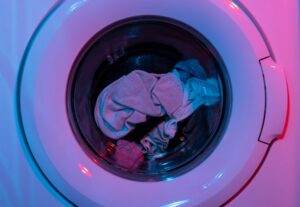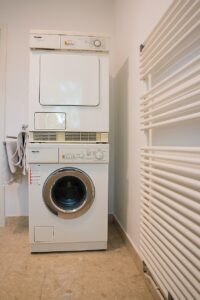Appliance preventive maintenance refers to the regular upkeep and care of household appliances to ensure their optimal performance and longevity. It involves a series of tasks and checks that are performed on a regular basis to prevent potential problems and extend the lifespan of appliances. Preventive maintenance is essential for keeping appliances in good working condition and avoiding costly repairs or replacements.
Table of Contents
- Key Takeaways
- Benefits of Regular Appliance Maintenance
- Common Appliance Problems and How to Prevent Them
- Tips for Maintaining Your Refrigerator
- Strategies for Maintaining Your Dishwasher
- Maintaining Your Oven and Stove
- Keeping Your Washing Machine and Dryer Running Smoothly
- Appliance Maintenance Checklist: What to Do and When
- Hiring a Professional for Appliance Maintenance: Pros and Cons
- What are the best preventive maintenance strategies for appliances?
- FAQs
- What is appliance preventive maintenance?
- Why is appliance preventive maintenance important?
- What are some common appliance preventive maintenance strategies?
- How often should appliances be maintained?
- What are the benefits of appliance preventive maintenance?
- Can I perform appliance preventive maintenance myself?
- What appliances should be included in a preventive maintenance plan?
Key Takeaways
- Regular preventive maintenance is crucial for keeping your appliances running smoothly and avoiding costly repairs.
- Preventive maintenance can extend the lifespan of your appliances and improve their energy efficiency.
- Common appliance problems, such as clogged filters and dirty coils, can be prevented with regular maintenance.
- Tips for maintaining your refrigerator include cleaning the condenser coils and checking the door seals.
- Strategies for maintaining your dishwasher include cleaning the spray arm and checking the drain filter.
Why is Preventive Maintenance Important for Appliances?
a) Cost savings: One of the primary reasons why preventive maintenance is important for appliances is cost savings. By regularly maintaining your appliances, you can identify and fix minor issues before they escalate into major problems that require expensive repairs or replacements. Regular maintenance can help you avoid unexpected breakdowns and the associated costs.
b) Increased lifespan of appliances: Appliances are a significant investment, and it is in your best interest to make them last as long as possible. Regular preventive maintenance can help extend the lifespan of your appliances by keeping them in optimal condition. By addressing minor issues promptly and ensuring proper care, you can avoid premature wear and tear and maximize the lifespan of your appliances.
c) Improved energy efficiency: Another benefit of preventive maintenance is improved energy efficiency. Appliances that are not properly maintained may consume more energy than necessary, leading to higher utility bills. Regular maintenance tasks such as cleaning filters, coils, and vents can help improve the energy efficiency of appliances, resulting in lower energy consumption and cost savings.
d) Enhanced safety: Safety is a crucial aspect of appliance maintenance. Faulty or poorly maintained appliances can pose a risk of electrical hazards, fires, or gas leaks. Regular maintenance helps identify potential safety issues and allows for timely repairs or replacements, ensuring the safety of your household.
Benefits of Regular Appliance Maintenance
a) Reduced risk of breakdowns: Regular appliance maintenance significantly reduces the risk of unexpected breakdowns. By addressing minor issues before they escalate, you can prevent major malfunctions and avoid the inconvenience of a malfunctioning appliance. This can save you time, money, and stress.
b) Improved performance: Appliances that are well-maintained perform better. Regular maintenance tasks such as cleaning, lubricating, and adjusting components can optimize the performance of appliances. This means faster cooking times, cleaner dishes, fresher food, and more efficient laundry cycles.
c) Better air quality: Appliances such as air conditioners, refrigerators, and dryers can accumulate dust, dirt, and other contaminants over time. Regular maintenance tasks such as cleaning filters, coils, and vents can improve air quality by removing these pollutants. This is especially important for individuals with allergies or respiratory conditions.
d) Increased resale value: Well-maintained appliances have a higher resale value. If you plan to sell your home in the future, potential buyers will appreciate appliances that have been properly maintained. Regular maintenance demonstrates that you have taken good care of your appliances and increases their perceived value.
Common Appliance Problems and How to Prevent Them
a) Clogged filters: Clogged filters can reduce the efficiency of appliances such as air conditioners, refrigerators, and vacuum cleaners. Regularly cleaning or replacing filters can prevent clogs and ensure optimal performance.
b) Leaks: Leaks are a common problem in appliances such as dishwashers, washing machines, and refrigerators. Checking hoses, seals, and connections regularly can help identify leaks early on and prevent water damage.
c) Electrical issues: Electrical issues can be dangerous and may lead to fires or electrical shocks. Regularly inspecting cords, plugs, and outlets for signs of damage or wear can help prevent electrical issues.
d) Wear and tear: Appliances experience wear and tear over time due to regular use. Regular maintenance tasks such as lubricating moving parts, tightening screws, and replacing worn-out components can prevent excessive wear and extend the lifespan of appliances.
e) Lack of cleaning: Failure to clean appliances regularly can lead to a buildup of dirt, grime, and debris, affecting their performance and efficiency. Regular cleaning tasks such as wiping surfaces, cleaning vents, and removing food debris can prevent issues caused by lack of cleaning.
Tips for Maintaining Your Refrigerator
a) Cleaning the coils: The coils at the back or bottom of your refrigerator can accumulate dust and dirt, reducing its efficiency. Regularly vacuuming or brushing off the coils can improve energy efficiency and prevent breakdowns.
b) Checking the door seals: The door seals, also known as gaskets, ensure a tight seal and prevent cold air from escaping. Regularly inspecting the door seals for cracks or gaps and cleaning them with mild soap and water can maintain their effectiveness.
c) Adjusting the temperature: Keeping your refrigerator at the optimal temperature can prevent food spoilage and reduce energy consumption. Consult your refrigerator’s manual for the recommended temperature settings and adjust accordingly.
d) Organizing the contents: Properly organizing the contents of your refrigerator can improve airflow and prevent overloading. Avoid overcrowding shelves and ensure proper ventilation around food items.
e) Defrosting regularly: If your refrigerator has a freezer compartment, regular defrosting is necessary to prevent ice buildup. Follow the manufacturer’s instructions for defrosting your refrigerator to maintain its efficiency.
Strategies for Maintaining Your Dishwasher
a) Cleaning the filter: Dishwashers have filters that trap food particles and debris. Regularly removing and cleaning the filter can prevent clogs and ensure proper drainage.
b) Checking the spray arms: The spray arms in your dishwasher distribute water to clean dishes. Regularly inspecting them for clogs or damage and cleaning them with a toothbrush can improve their performance.
c) Running hot water before starting: Before starting a dishwasher cycle, run hot water in your sink until it reaches its hottest temperature. This ensures that the dishwasher starts with hot water, improving its cleaning efficiency.
d) Using the right detergent: Using the appropriate dishwasher detergent for your water hardness and dishwasher model can prevent buildup and improve cleaning results. Consult your dishwasher’s manual for detergent recommendations.
e) Loading the dishwasher properly: Properly loading the dishwasher can prevent damage to dishes and ensure thorough cleaning. Follow the manufacturer’s instructions for loading your specific dishwasher model.
Maintaining Your Oven and Stove
a) Cleaning the burners and grates: Burners and grates can accumulate grease and food debris over time, affecting their performance. Regularly cleaning them with mild soap and water or a suitable cleaner can prevent buildup.
b) Checking the oven temperature: Ovens can lose accuracy over time, leading to uneven cooking or baking. Regularly checking the oven temperature with an oven thermometer can ensure accurate cooking results.
c) Using the self-cleaning feature: If your oven has a self-cleaning feature, use it regularly to remove built-up grease and food residue. Follow the manufacturer’s instructions for safe and effective use of the self-cleaning feature.
d) Avoiding spills and stains: Wipe up spills and stains promptly to prevent them from becoming baked-on or difficult to clean. Use oven liners or aluminum foil to catch drips and spills.
e) Replacing faulty parts: If you notice any issues with your oven or stove, such as uneven heating or malfunctioning knobs, consider replacing faulty parts promptly to prevent further damage.
Keeping Your Washing Machine and Dryer Running Smoothly
a) Cleaning the lint filter: Dryers have lint filters that trap lint and debris. Regularly cleaning the lint filter after each use can prevent clogs and improve drying efficiency.
b) Checking the hoses: Inspect the hoses of your washing machine for signs of wear or leaks. Replace any damaged hoses promptly to prevent water damage or flooding.
c) Using the right detergent: Using the appropriate detergent for your washing machine and laundry type can prevent buildup and ensure clean and fresh-smelling clothes. Follow the manufacturer’s instructions for detergent recommendations.
d) Not overloading the machines: Overloading the washing machine or dryer can strain their components and reduce their efficiency. Follow the manufacturer’s guidelines for load capacity to prevent damage.
e) Cleaning the drum: Over time, washing machine drums can accumulate dirt, soap scum, and mildew. Regularly cleaning the drum with a mixture of vinegar and water or a suitable cleaner can prevent odors and maintain cleanliness.
Appliance Maintenance Checklist: What to Do and When
a) Monthly tasks:
– Clean refrigerator coils
– Clean dishwasher filter
– Inspect oven burners and grates
– Clean dryer lint filter
b) Quarterly tasks:
– Check refrigerator door seals
– Inspect dishwasher spray arms
– Check oven temperature accuracy
– Inspect washing machine hoses
c) Annual tasks:
– Defrost refrigerator (if necessary)
– Clean oven using self-cleaning feature
– Clean dryer vent
– Replace washing machine hoses (if necessary)
d) Seasonal tasks:
– Adjust refrigerator temperature for seasonal changes
– Inspect air conditioner filters before summer
– Clean air conditioner coils before summer
– Inspect heating system before winter
Hiring a Professional for Appliance Maintenance: Pros and Cons
a) Benefits of hiring a professional:
– Expertise: Professionals have the knowledge and experience to identify and address potential issues with appliances.
– Time-saving: Hiring a professional saves you time and effort, as they can efficiently perform maintenance tasks.
– Warranty protection: Some appliances require professional maintenance to maintain their warranty coverage.
– Peace of mind: Knowing that your appliances are in the hands of a professional can provide peace of mind.
b) Drawbacks of hiring a professional:
– Cost: Hiring a professional for appliance maintenance can be expensive, especially for routine tasks that you can do yourself.
– Scheduling: Coordinating with a professional’s schedule may be inconvenient, especially for busy households.
– Trustworthiness: Not all professionals may provide reliable and trustworthy services. It is important to choose a reputable professional.
c) When to hire a professional:
– For complex maintenance tasks that require specialized knowledge or tools.
– If you are unsure about performing maintenance tasks yourself.
– If your appliances are still under warranty and require professional maintenance to maintain coverage.
d) How to choose a reputable professional:
– Research and read reviews: Look for professionals with positive reviews and testimonials from previous customers.
– Check credentials: Ensure that the professional is licensed, insured, and certified if applicable.
– Get multiple quotes: Compare quotes from different professionals to ensure fair pricing.
– Ask for referrals: Seek recommendations from friends, family, or neighbors who have used appliance maintenance services.
In conclusion, preventive maintenance is crucial for the optimal performance and longevity of household appliances. Regular maintenance tasks can save you money, extend the lifespan of your appliances, improve energy efficiency, and enhance safety. By addressing common appliance problems and following maintenance tips specific to each appliance, you can ensure that your appliances continue to perform at their best. Whether you choose to perform maintenance tasks yourself or hire a professional, taking action and maintaining your appliances regularly is essential for their longevity and your peace of mind.
What are the best preventive maintenance strategies for appliances?
Regular appliance preventive maintenance importance cannot be overstated. Simple tasks like cleaning filters, checking for leaks, and ensuring proper ventilation can significantly extend the lifespan of your appliances. Scheduling professional tune-ups and inspections can catch small issues before they turn into major problems, saving you time and money in the long run.
FAQs
What is appliance preventive maintenance?
Appliance preventive maintenance refers to the regular upkeep and inspection of household appliances to prevent breakdowns and extend their lifespan.
Why is appliance preventive maintenance important?
Appliance preventive maintenance is important because it helps to identify potential problems before they become major issues, reduces the risk of breakdowns, and extends the lifespan of appliances.
What are some common appliance preventive maintenance strategies?
Common appliance preventive maintenance strategies include cleaning appliances regularly, inspecting and replacing filters, checking for leaks, and scheduling professional maintenance checks.
How often should appliances be maintained?
The frequency of appliance maintenance depends on the type of appliance and how often it is used. Generally, appliances should be inspected and maintained at least once a year.
What are the benefits of appliance preventive maintenance?
The benefits of appliance preventive maintenance include reduced energy consumption, improved appliance performance, increased safety, and cost savings by avoiding major repairs or replacements.
Can I perform appliance preventive maintenance myself?
Some appliance preventive maintenance tasks can be performed by homeowners, such as cleaning appliances and replacing filters. However, it is recommended to schedule professional maintenance checks for more complex tasks and to ensure proper maintenance.
What appliances should be included in a preventive maintenance plan?
Appliances that should be included in a preventive maintenance plan include refrigerators, ovens, dishwashers, washing machines, dryers, and HVAC systems.



